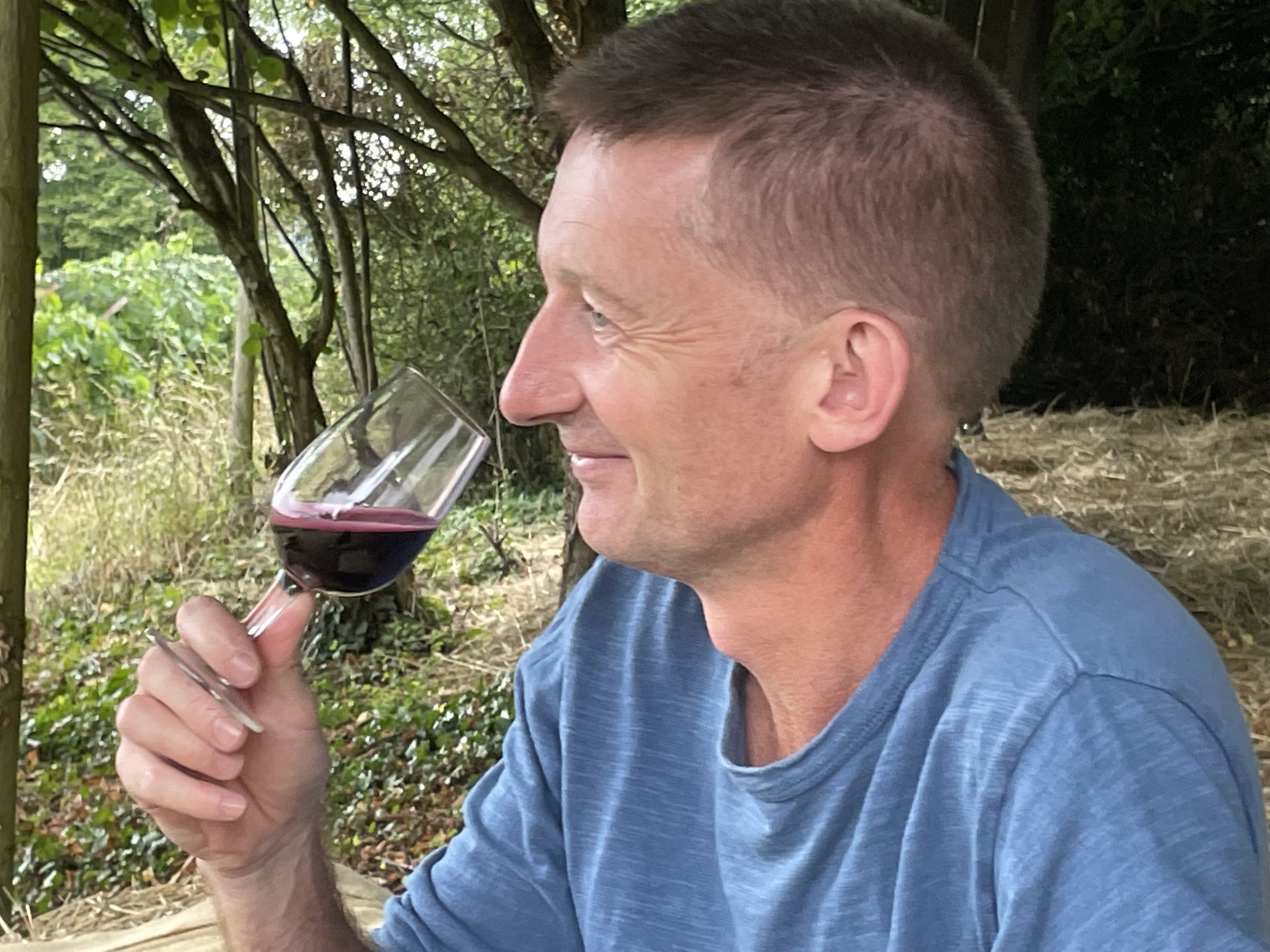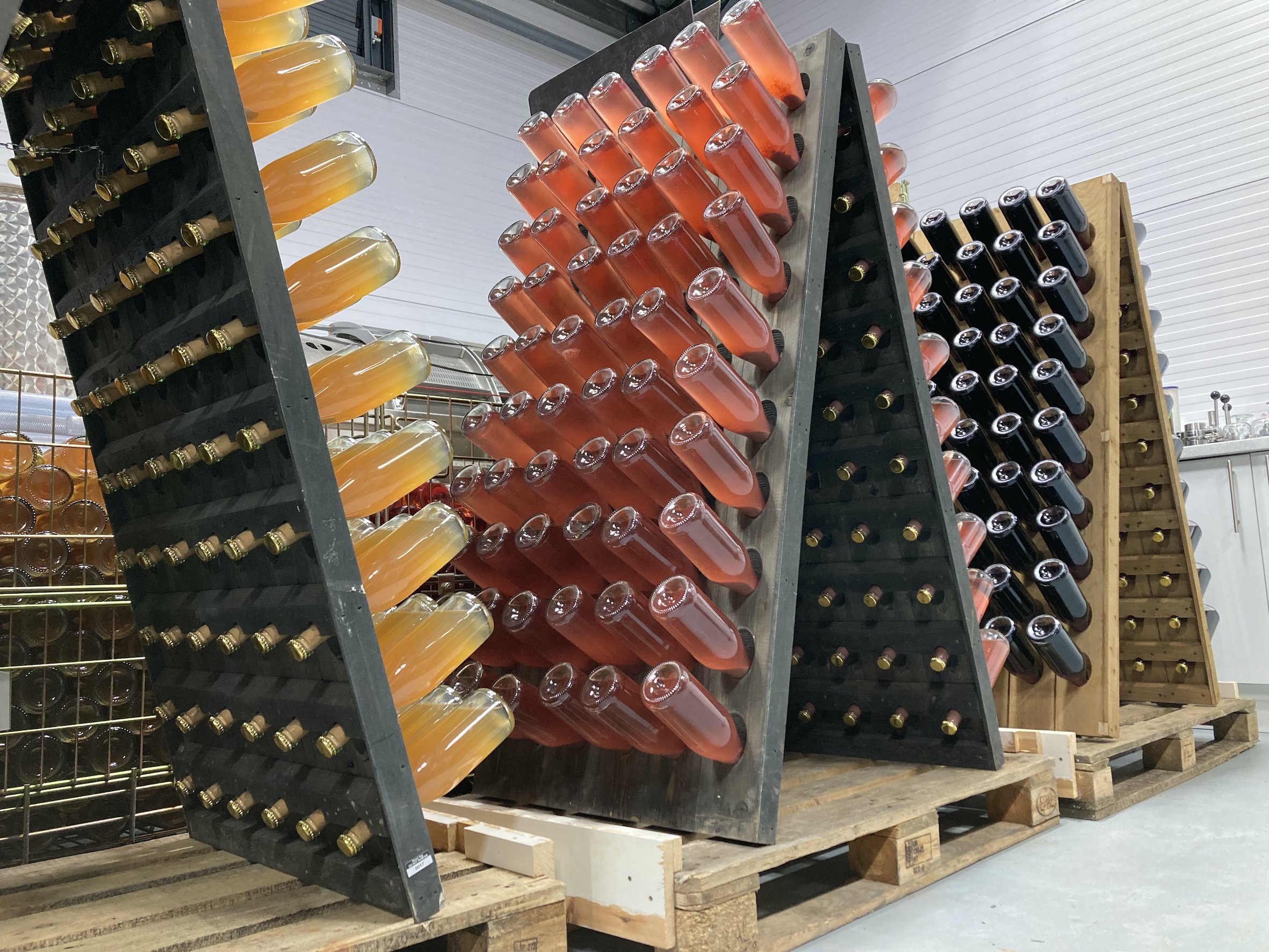Limeburn Hill Vineyard is owned and cared for by us – Robin Snowdon and Georgina Harvey. We run the vineyard on Biodynamic principles because we want to work in a healthy landscape, rich in wildlife, and encourage the full expression of the spirit of the land in the fruit that is grown here.
Robin worked as an architect, landscape architect and lecturer before reconnecting with his childhood wish to be a farmer. His road to winemaking began at the age of 10 when he won first prize for his alcoholic ‘strawbilberry’ wine, even though his Mum had to accept the prize.
Georgina worked in documentary-making for the BBC before a career change to landscape architecture, alongside the vineyard. The vineyard and its 18th century farmhouse has become her place to explore creativity and community.
About Us
Our Vineyards
Our first vineyard was planted in 2015 with 6 different varieties of grapes, including Pinot Noir, Regent, Rondo, Seyval Blanc, Orion and Solaris. We also did some test planting of a hybrid variety called Johanniter.
Five years later we planted another 1200 vines focusing on Johanniter and a new variety, Sauvignac. We have selected predominantly German and French hybrids, where a traditional grape is crossed with a more disease-resistant variety. This allows us to work without synthetic chemicals and focus on the use of plant-based teas grown on the vineyard, and compost teas to develop the natural resilience of the vines.
Winemaking
We make small batches of wine exclusively from our own hand-harvested grapes which are fermented using the wild yeast on the skins to produce natural wines.
We make Pétillant Naturel wines, using the ancestral method of single fermentation in the bottle to produce lightly sparkling, deliciously dry and aromatic wines. The grape skins are left for a time in the fermentations to influence flavour, colour, tannins and longevity. All our products contain only naturally occurring sulphites produced during fermentation. The wines are unfiltered, and also unfined, making them suitable for vegans.
Some of our wines are distilled into spirits, one as a pure Eau de Vie de Vin, and one macerated with quince.
We also produce a natural dessert wine in the style of a Vin Doux or Mistelle which combines fermenting grape juice with Eau de Vie de Vin.
Our first still wines are in tank biding their time until being ready for release.
Biodynamic Agriculture
Our approach to both the land and the winemaking is based on the holistic principles of Biodynamic Agriculture. This system was developed by Rudolph Steiner a century ago and is the precursor to the Organic movement. Steiner advocated a ‘salutogenic’ approach which focuses on enhancing health, rather than fighting disease.
There are 5 biodynamic principles with influence our work:
Recognising the inherent value and interconnectedness of all things
Working with both the material/physical and the energetic/life force aspects of the world
Considering the farm as a living organism which is as healthy, self-sufficient and balanced as possible
Working with a series of ‘preparations’, based on plants, quartz and cow manure to feed the vines and soil
Being guided by the powerful cycles of the sun, moon and stars for optimum times for planting, harvesting, bottling and even drinking.
If you are interested in learning more about Biodynamics then take a look at our workshops and courses under Events.












